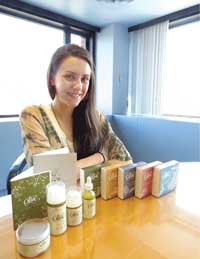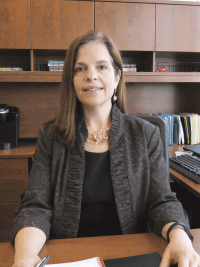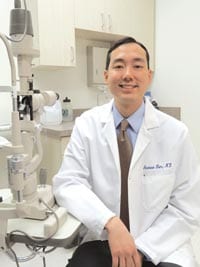The Search for Traction – Healthcare-related Startups Look to Accelerate Their Growth
When a hotel guest engages in conversation with the staffer charged with cleaning his or her room, Daniel Koval says, there is rarely more than small talk concerning the weather for that day.
But one such discussion he had roughly a year ago went much deeper — and the direction it took eventually led to a business opportunity Koval is now trying to get off the ground.
“I was working in my room, I allowed her to come in and clean, and noticed that she was in a good deal of pain,” he said in an interview via Skype while he was in Japan meeting with a potential client. “I was chatting with her a bit and had just found out that she was recovering from nine months of workers’ comp disability leave.
“She had messed up her back quite badly and was still in pain, but had returned to work,” he went on. “I asked her what it was, and she said it was just the strains of the job — they do a lot of lifting, a lot of bending, a lot of kneeling. She said a number of her colleagues were also injured.”
Koval believes he’s found an answer to these persistent health issues through an innovation he calls the ‘Duop.’
This is a mop that uses a unique ball-and-socket mechanism to make cleaning work easier and quicker. The name comes from ‘dual mop,’ because the head of the product can be removed and used by hand, providing ergonomic, hygiene, and cleaning benefits.
Through a venture he’s created called Worksafe Technology Inc., Koval is bringing the Duop to the market, and thus he’s one of many entrepreneurs in this region — and from outside it as well — trying to gain traction with their ideas through their involvement with Valley Venture Mentors (VVM) and its Accelerator Program.
Traction is a precious and often hard-to-calculate commodity in business. It is an inexact measure of how effectively a product or service is gaining acceptance, credibility, and, yes, sales. So, in many ways, the first annual Accelerator Awards, staged recently by VVM, represented a highly competitive contest of traction — which of the 30 companies in the first cohort of the Accelerator Program had it, and which ones could gain a lot more of it if they had some more capital to work with.
If the numbers written on the ceremonial checks handed out at the awards ceremony on April 30 are any indication — and most involved would say they are — then Jessica Lauren has certainly achieved some traction with Olive Natural Beauty Inc.
This is a venture that boasts a growing line of products that, as the name suggests, uses olive oil as its base ingredient, but separates itself from others that do the same by the all-natural quality of every item on the ingredient list.
Lauren won a check for $35,000, the largest amount handed out that night by a panel of judges, each of whom had, in essence, $20,000 to apportion and were free to dispense it any way they chose. Lauren intends to stretch those dollars about as far as humanly possible, allocating them for everything from more aggressive marketing programs to building inventory to taking on a strategic partner, as she seeks to take her company to the proverbial next stage.
“It costs money to run a business, and anything would really help push us to the next level,” she said, adding quickly that the amount on her check constitutes far more than ‘anything.’ “This is going to be huge for us.”
And Koval has some traction as well. He won $20,000, and is planning to use that money to finance the first production run of the Duop. After wrapping things up in Japan, he was headed to China for a meeting with the manufacturer that will produce them.
There were several other healthcare-related ventures in that first Accelerator cohort, and several took home large checks at the awards dinner. They include BeTH, or Benevolent Technologies for Health, which has developed custom-fit prosthetic devices, and EDENIS, which specializes in wound-analysis technology.
For this issue, HCN talked with some of these entrepreneurs about how they plan to make their mark in the broad healthcare sector.
Getting a Grip
‘I love you guys, but … no way.’
That’s one of the qualitative assessments used in conjunction with actual numbers (1-9) on the score sheets employed by so-called ‘herds’ within that first accelerator cohort as the entrepreneurs judged their peers and fellow competitors in one of the early phases of the process that decided who received checks on April 30 and how big they were.
That phrase obviously pertained to someone who would score a ‘1’ or ‘2,’ and thus it wasn’t used often, if at all, said Paul Silva, executive director of VVM, as he noted that the 30 companies chosen to be in that first cohort were clearly among the more promising startup ventures in this region — and well beyond, as things turned out.
Other assessments, used far more often, included ‘weak story and not enough customer validation,’ ‘somewhat agree/you got me onto the right side of the fence,’ ‘believable story but not enough customer validation,’ and ‘a rare unicorn of perfection,’ which would constitute a ‘9.’
The unicorn has become the unofficial symbol of VVM, and it was on display prominently at the awards ceremony. It represents an ambitious goal, something rare, but also (at least in the VVM universe) something real.
Finding a unicorn is the unstated mission of all the entrepreneurs involved with the accelerator program, said Silva, noting that these individuals went through a rugged period of learning and assessment designed to provide tough love, mentoring, and, for several ventures, very-much-needed cold, hard cash.
Those aforementioned herds were comprised of five entrepreneurs each, and the herds did not judge those in their own group, said Silva, adding that they gathered scores to six questions (statements, actually), ranging from ‘the company has proven, in-depth understanding of their customers and the customers’ pains’ to ‘the company has a proven revenue model, logical pricing, and has an accurate handle on all applicable costs; they know what can kill them!’ — to effectively narrow the field to 12 finalists.
This smaller field was then assessed by the group of 14 judges, who are also investors, who heard 10-minute presentations from the finalists and then could follow up with more questions and input during a trade-show period before the awards presentation.
Lauren obviously impressed those judges, with both what she’s accomplished to date and the potential to soar much higher.
Like the others we spoke with, Lauren said her venture was born through a mix of necessity and both experience with other products on the market and frustration with them.
“Growing up in an Italian family, olive oil was an important part of our lifestyle in terms of being healthy and taking care of yourself and your skin,” she explained. “And when I went to college, I went to work for an apothecary, and that experience really opened my eyes to the cosmetics industry in the U.S., because there are literally no regulations — there are tons of ingredients that go into cosmetic products that are not regulated or tested or approved by the FDA or any other organization.”
What evolved over time, then, was a business focused on the many beneficial properties of olive oil and featuring the transparency and natural ingredients missing from most products made in the U.S.
She started with a lab in her kitchen, testing various products and providing them to friends and relatives, who started asking for more. And, as she said herself, “the rest is history.”
Explaining in more detail, she said olive oil has become, in many respects, a gourmet product. She is riding that wave, certainly, but in a unique manner.
Her products have achieved traction in a number of ways, she said, noting that she’s sold more than 400,000 units to date (like a true entrepreneur, she got more precise, offering the number 404,000). The products are sold through 30 retailers in the U.S. and Canada, and Lauren is in serious negotiations with a major chain she opted not to name that will greatly improve that number if all goes well.
Perhaps most importantly, she’s getting some solid reviews, which are crucial because of the sheer volume of competition.
For example, Michelle Phan, founder of the website ipsy.com, which helps consumers wade through the myriad products on the market through reviews and recommendations, tried some of Lauren’s lip balm and discussed it glowingly in one of her online videos.
As part of that PR and marketing push toward which Lauren wants to direct some of her winnings, she’s striving to win some exposure in People, Good Housekeeping, and other publications with a strong focus on health and beauty and that feature companies making such products.
If all goes as planned — and she expects it will — sales volume, currently around $250,000, should eclipse $1 million in 2016.
Back to the Future
As he talked about the Duop and its potential to spark a business, Koval, now based in Great Barrington, returned to the encounter with that hotel-room attendant and its aftermath.
And he stressed that her story is anything but unique.
“I did some research, and I found out that these room attendants are the coal miners of the hospitality industry — they have huge rates of occupational injury,” he explained. “And it’s a huge problem across the board. It’s costing the corporations millions and millions of dollars a year, not just in terms of workers’ compensation, but in terms of labor — what it costs to hire new people and train new people, and all the HR and losing highly trained professional staff.
“I thought to myself, ‘if everyone’s losing, maybe there needs to be a solution,’” he went on. “I hired some designers to shadow the room attendants and find out how they were being injured. Among the things we found is that the way they clean the floors in the bathrooms and the way they dust is leading to huge amounts of bending, kneeling, and this traffic-cop-style wrist position which causes carpal tunnel syndrome over time.”
To address all of this, Koval, a former GE employee who later ran his own product-design company that specialized in giftware, said he set out to essentially reinvent the mop, the basic tool of that industry.
Research led to the ball-and-socket design, which brings a number of advantages and much higher levels of flexibility.
“It’s faster, it makes cleaning easier, and it’s much less stressful on the body; the room attendants loved it, and they all wanted to take it home,” he said of what amounted to the first prototype.
The challenge moving forward is to impress bigger audiences, and Koval believes he can do that, especially with the large cleaning companies that sell equipment and supplies to large hotel chains, including the one he was meeting with in Japan.
Koval has already succeeded in impressing the Accelerator Program judges, who awarded him $20,000, which he believes will make a huge difference as he tries to bring his product to the marketplace, something he expects to do in about three months.
Customers like the one he’s visiting in Japan want a look at the latest sample of the product, he said, and he confidently predicts $500,000 in sales by the end of this year.
On the Bucket List
Koval said he believes the Duop will be the first of many successful products to be turned out by Worksafe Technology.
Indeed, the company is working on other developments, and Koval believes his team can and will reinvent the bucket next. When asked how, like a true entrepreneur with a potentially revolutionary idea, he said he couldn’t reveal any details. But he advised HCN to stay tuned.
Those same instructions were offered by others in the cohort we spoke with, who have different ideas, different markets to penetrate, and different business plans to make reality.
They all have the same mission, though: to achieve traction. And by most accounts, they’re off to a good start.





Comments are closed.